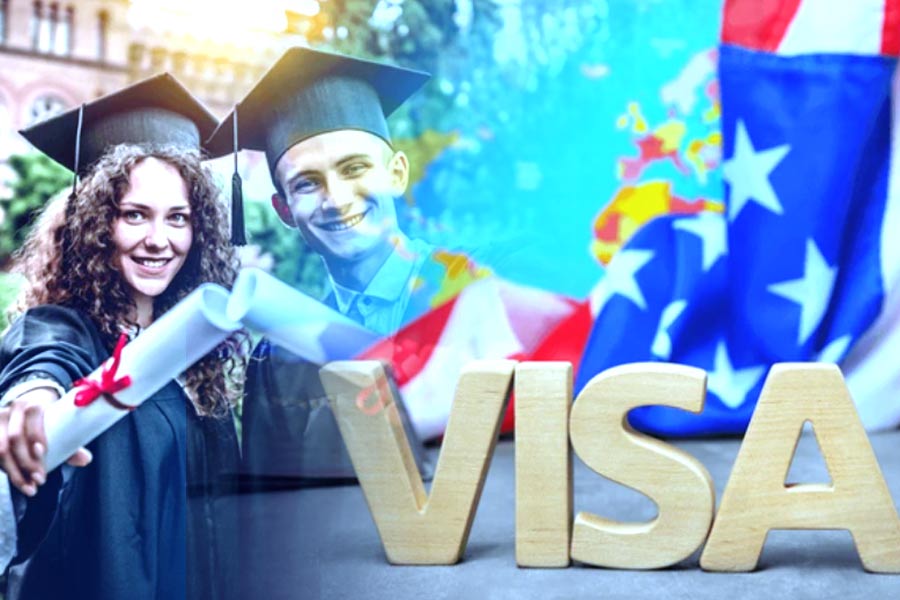Students aspiring to study in the United States and many who have already received offers from American universities are growing anxious as new restrictions threaten their academic plans.
The US has halted new student visa interviews while it develops social media vetting procedures as part of the application process. Even students with scheduled interviews worry that these restrictions could derail their future plans.
A 19-year-old with an offer from a top university has applied to colleges in India and Singapore as backup options. For many young Calcuttans, studying in the US has been a long-cherished dream.
“For technology and related fields, the US is the best place to study. It was both open and welcoming, which is changing,” said the student, who completed school this year.
“Still, I feel it’s one of the best places to be, especially because of the opportunities — the jobs, internships and experiences you get. The situation does make us anxious, and we hope the doubts are resolved soon,” added the student who didn’t wish to be named.
Every year, students from the city’s most reputable schools head to the US for undergraduate and postgraduate studies. Many have shared their worries with teachers, having worked hard for years, only to face uncertainty at
the threshold of joining their university of choice.
The order to halt visa interviews for students was issued by secretary of state Marco Rubio in a cable dated Tuesday that went out to US embassies and consulates. A State Department statement said that visa applicants have been asked to provide social media account information on forms since 2019.
The timing of the order compounds the stress for students, especially for undergraduate aspirants. While ISC and CBSE students have finished exams and received their results, some international school students are still writing board exams.
“It is doubly stressful for them because they are worried about the restrictions while writing board exams,” said Tina Servaia, principal of the senior school at Calcutta International School.
“Students have turned down other universities in favour of the US. But there are other options, and that’s what we’re telling them to keep them upbeat.”
Unlike a decade ago, quality alternatives now exist in India, other Asian countries, and Europe, she added.
Education consultant Nirmal Agarwal has been advising students to maintain backup options.
“A lot has happened in recent months, and the latest is the halt in visa appointments,” Agarwal said. “I’ve been telling students to be patient and not panic because they’re scheduled to go in August. But as backup, we’re telling them to keep one alternative destination ready — whether another country or India —
in case things take time to settle or visa appointments don’t resume.”
The prospect of social media screening has made students especially cautious about their online activities.
“I won’t be able to have free rein over my social media presence. It will be continuously monitored to see if I’m posting anything against the US or remotely related to that,” said a computer science student who has an offer from a US university. “Even a minor issue could get me deported if I’m there. My visa hasn’t arrived yet, and I’m worried that anything remotely sensitive could go wrong.”
Students spoke at length but requested anonymity to avoid scrutiny.
“Students are in the dark, not knowing what the future holds,” said Satabdi Bhattacharjee, principal of The Newtown School. “Despite getting offers from prestigious institutions, things remain uncertain.”
One student noted that even academic performance could affect visa status: “It’s a threat that if I miss or skip classes, I might be deported.”










